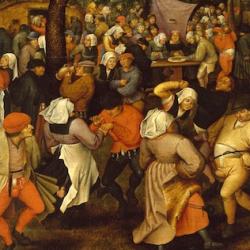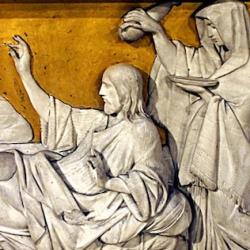Love has power to transform the world and lovers. “Love is the answer to the despair in which a reality is lost that knows nothing other than law, fate, and will” (74). Rosenstock-Huessy makes this claim in his Sociology, but he’s not being gauzily sentimental. Love takes public form in marriage, and the wedding day is a triumph over law, fate and will.” How so? “Every wedding breaks the prevailing law: it sanctions the change of a name. The freedom... Read more




















